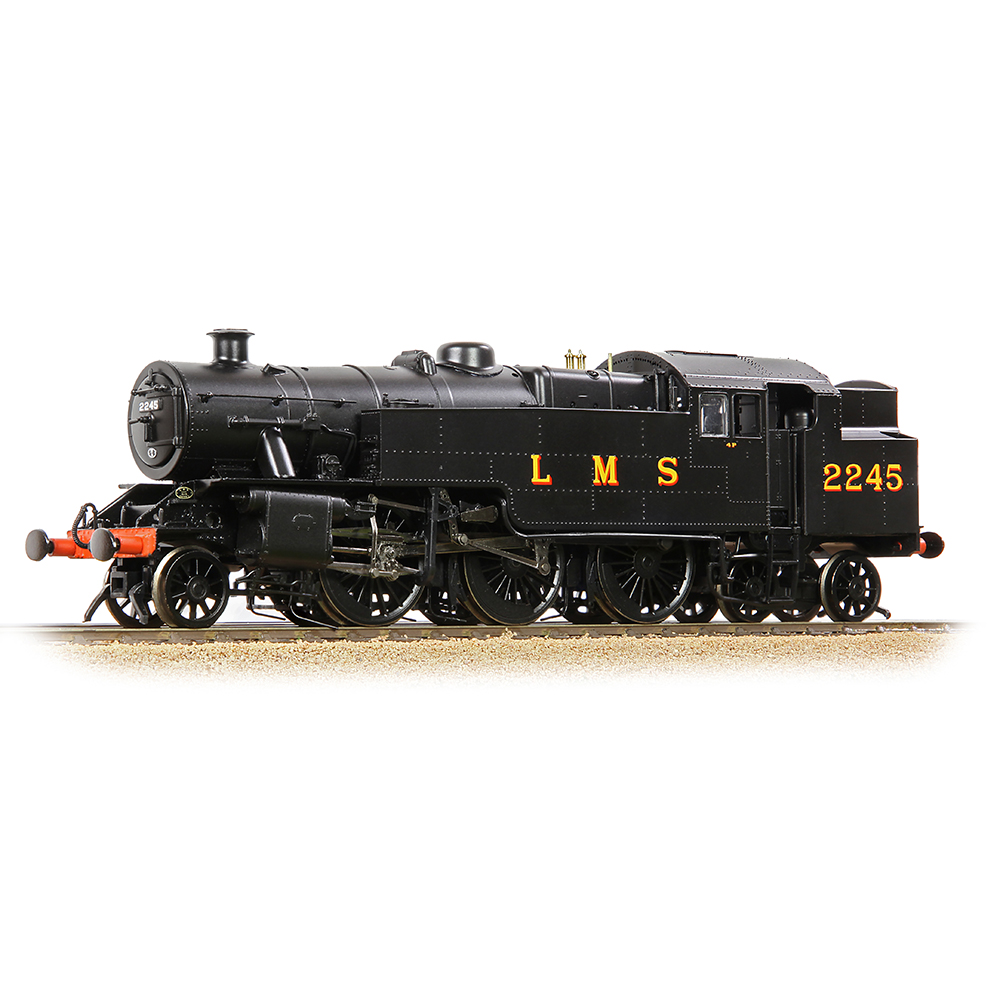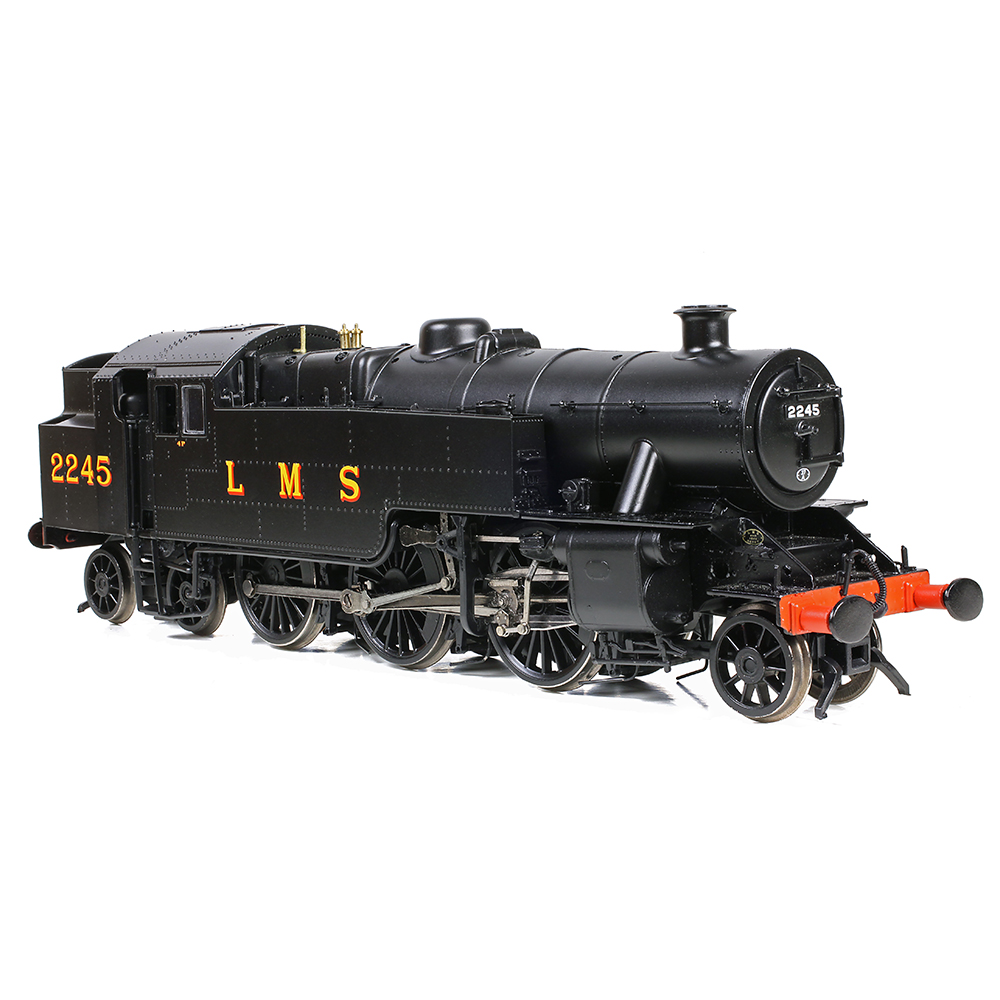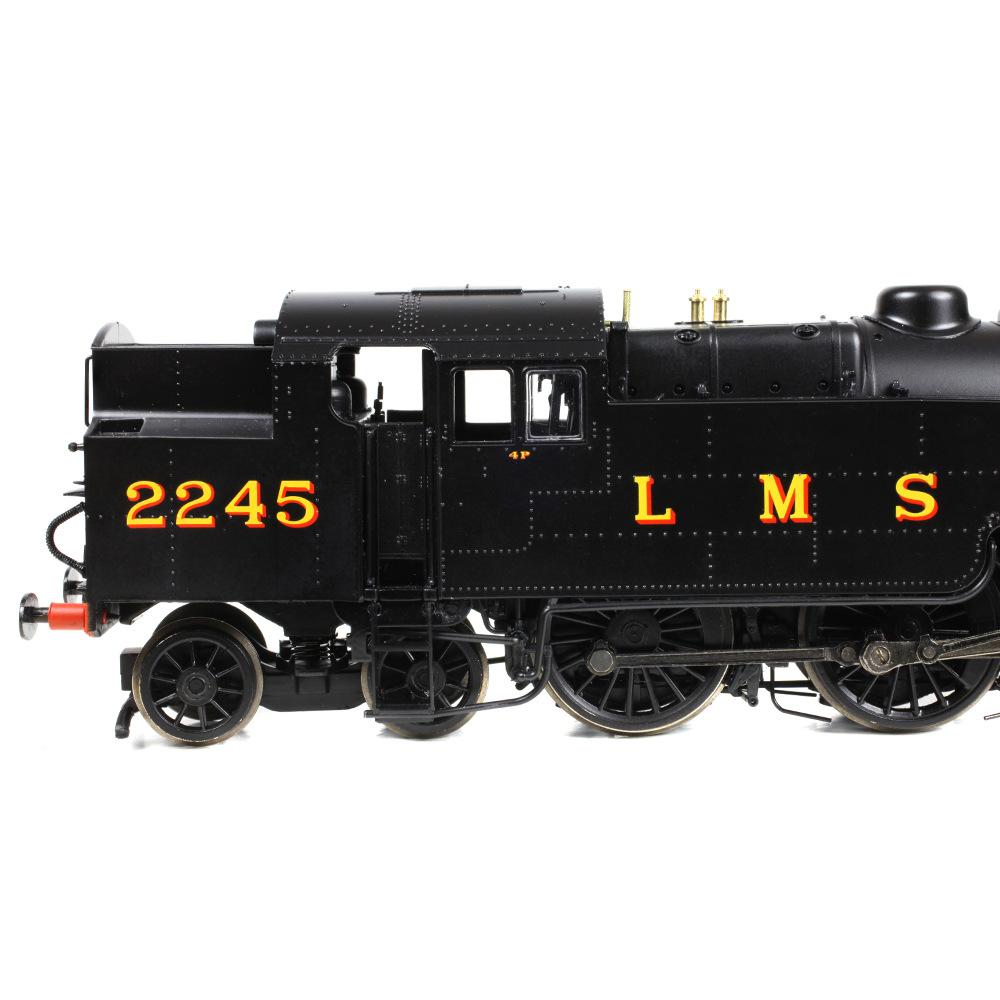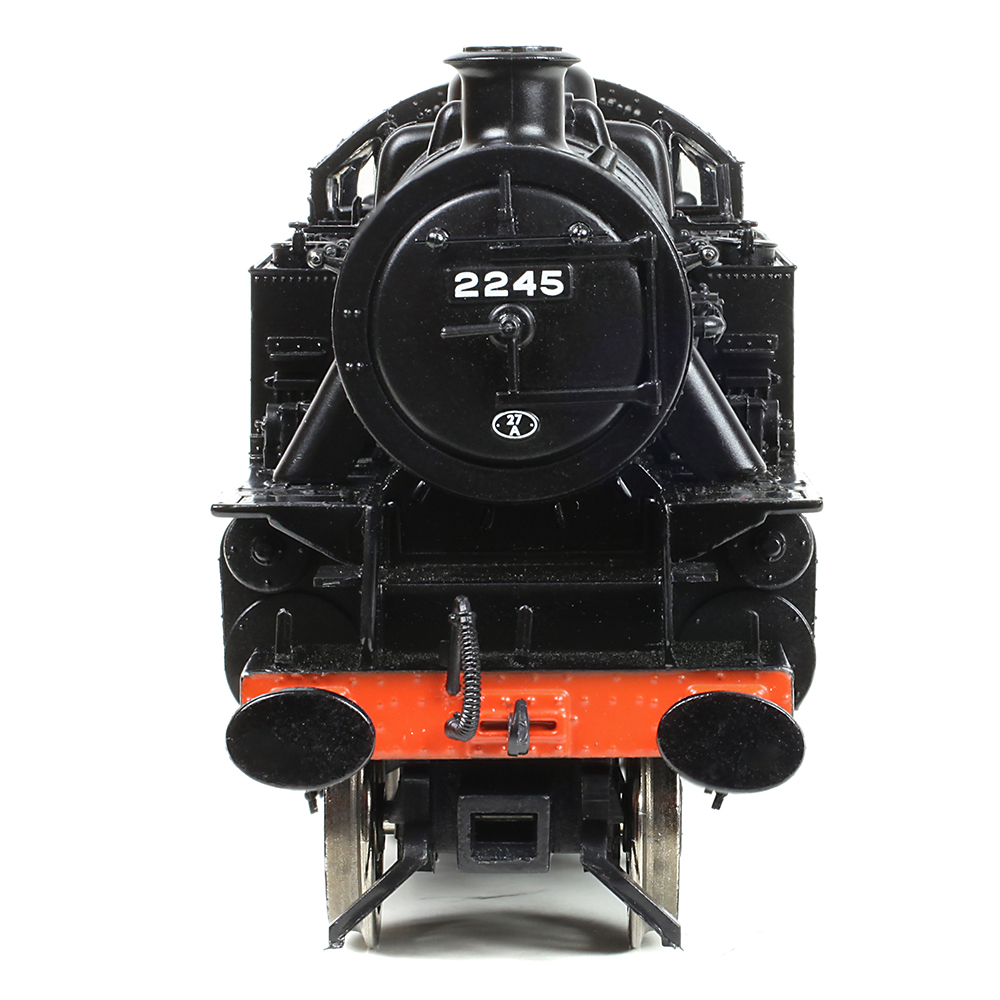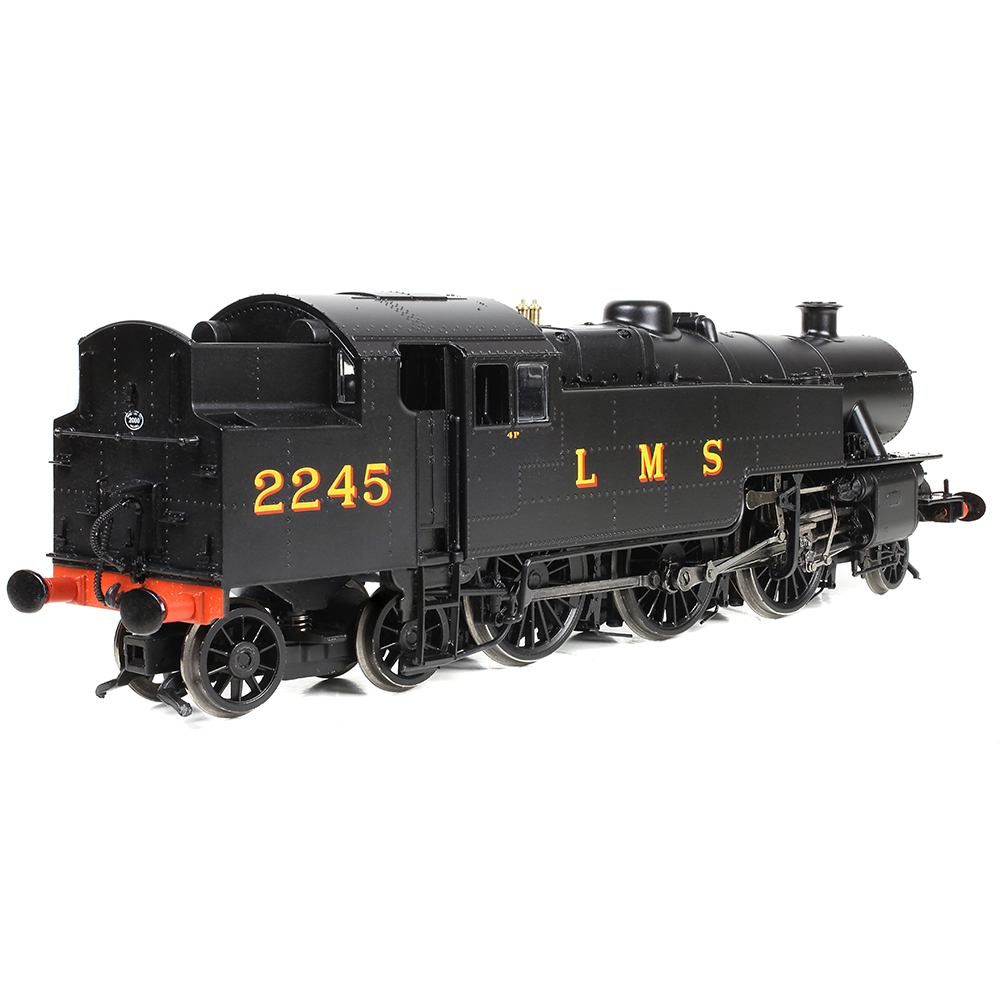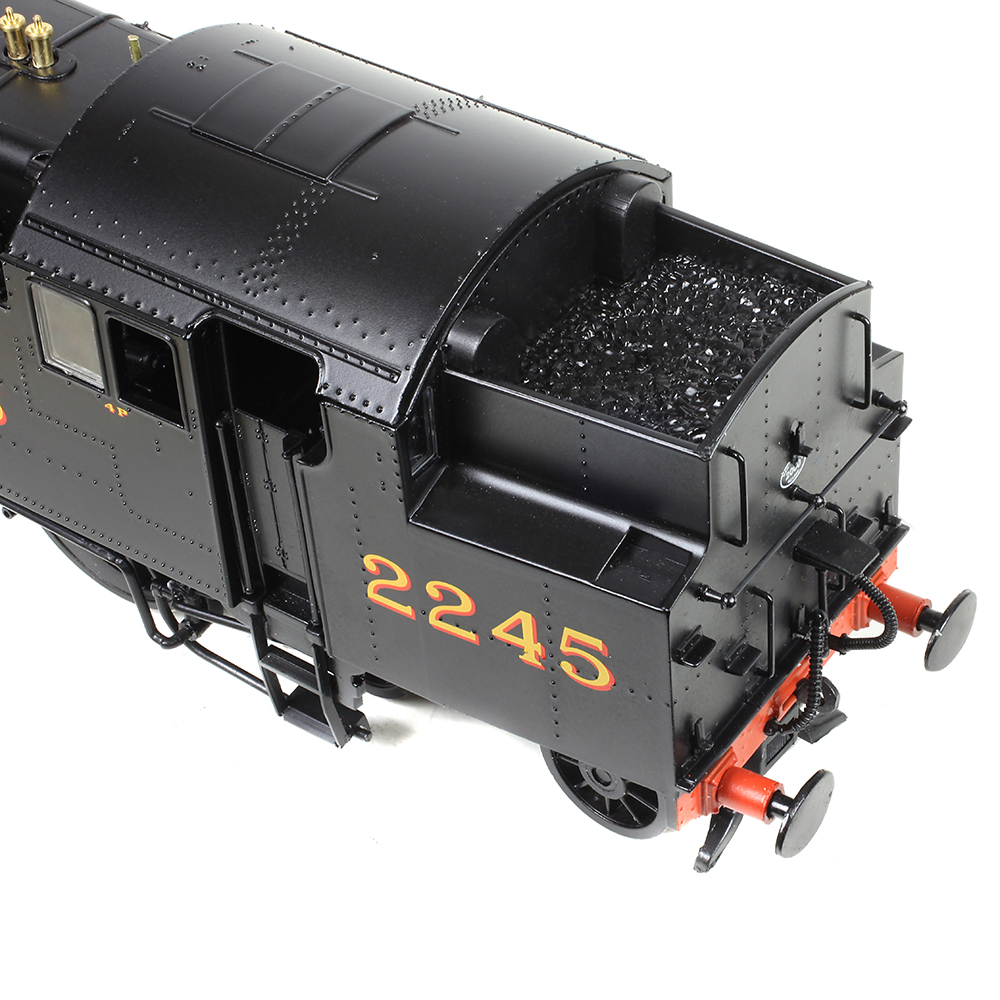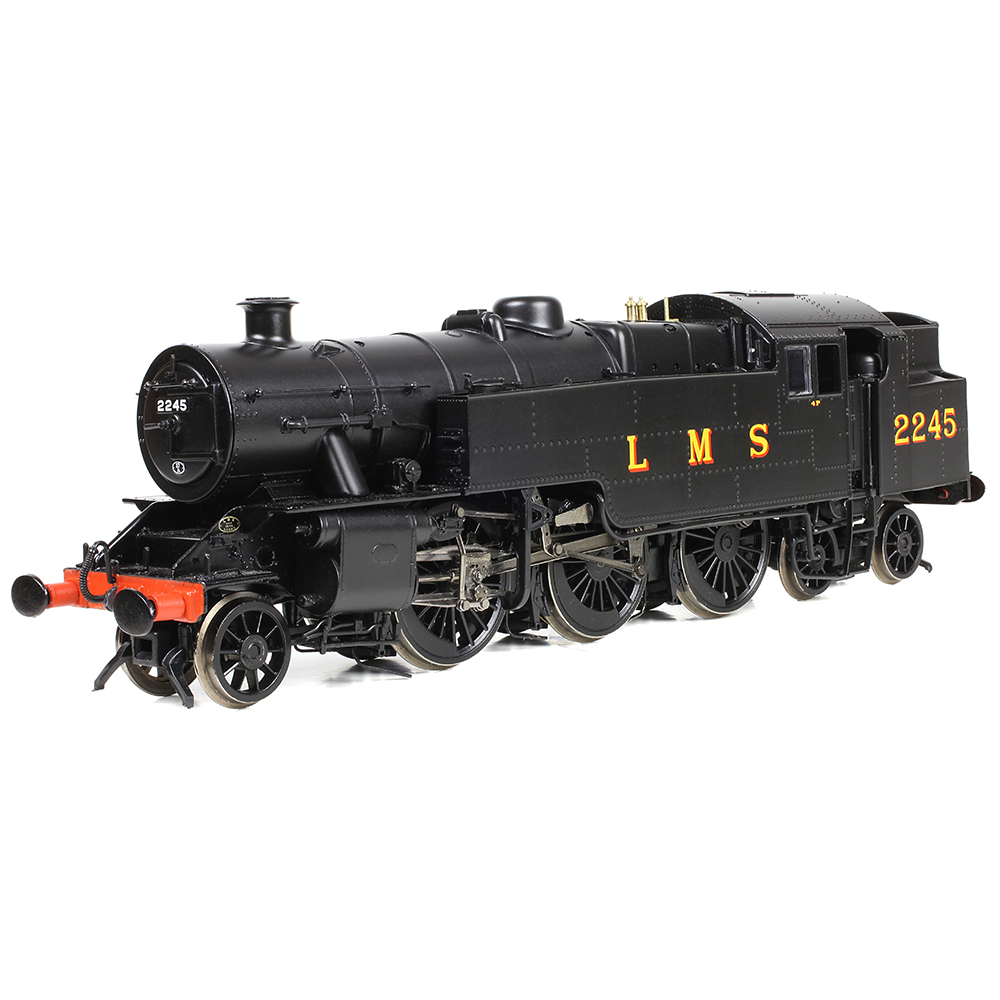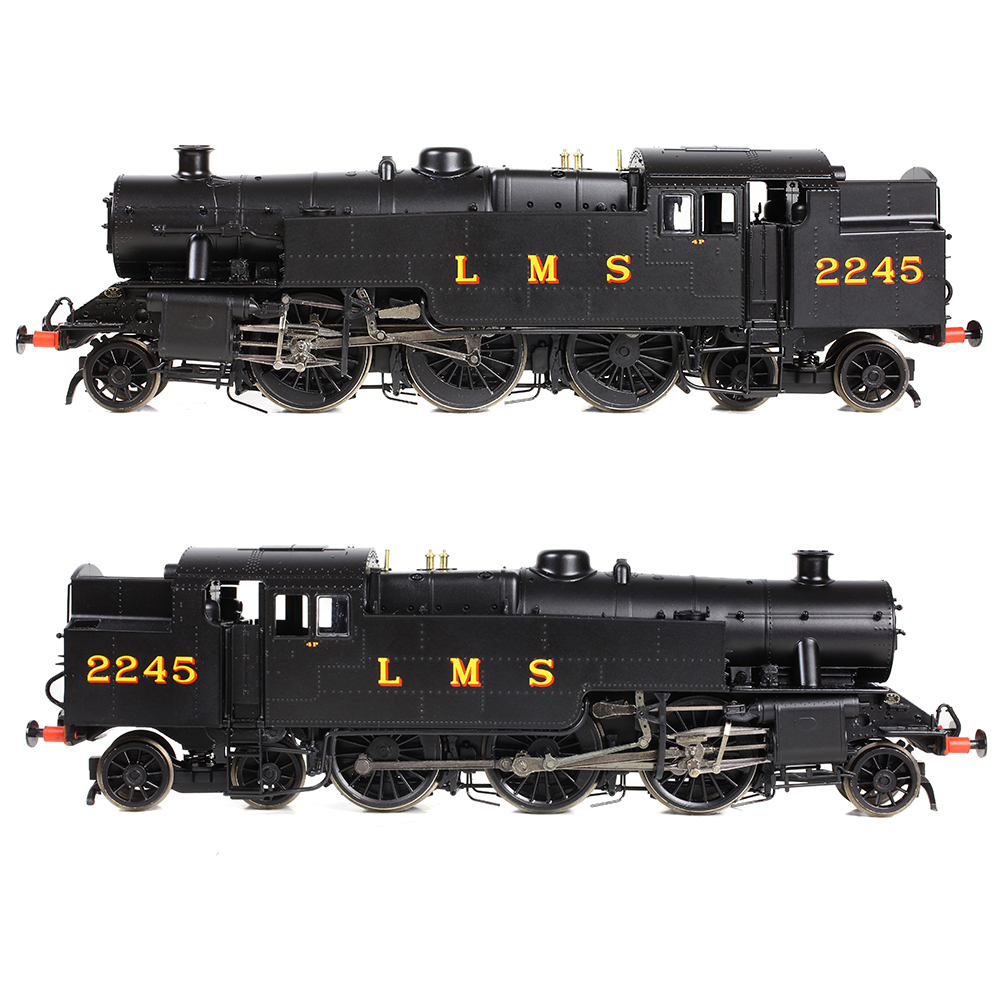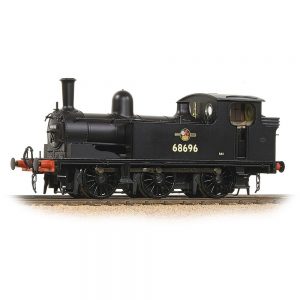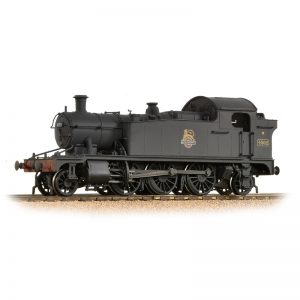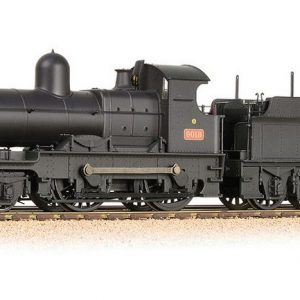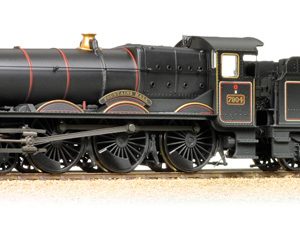Description
The Bachmann Branchline range has long provided a rich seam of OO scale models for the steam enthusiast and this latest release of the Fairburn Tank upholds that tradition. Overrunning with detail, some of the highlights of this magnificent model include the fine metal handrails, the sprung buffers and the separately fitted lamp irons. Turned Brass safety valves sit atop the firebox, whilst the abundance of rivets, a discernible feature on the prototype, is faithfully replicated in miniature, even on the diecast frames at the front end. These large tank locomotives have a big presence and with its substantial weight, you can expect this Bachmann Branchline model to deliver a performance befitting its powerful appearance.
MODEL FEATURES:
- Bachmann Branchline OO Scale
- Era 3
- Pristine LMS Black (Original) livery
- Running No. 2245
- Accessory Pack
- NEM Coupling Pockets
- Sprung Buffers
- Powerful 3 Pole Motor
- Equipped with a 8 Pin Decoder Socket
- Length 190mm
FAIRBURN TANK HISTORY
The London Midland and Scottish Railway (LMS) ‘Fairburn’ 2-6-4 Tank locomotives were designed by Charles E. Fairburn, Chief Mechanical Engineer of the LMS, 1944-1945. The locomotive was based on the ‘Stanier’ 2-6-4T, designed by Fairburn’s predecessor Sir William Stanier, which itself was derived from the earlier ‘Fowler’ 2-6-4T engine – designed by Henry Fowler. Construction began at Derby in 1945 and by the time building ceased in 1951, 236 locomotives had been built for use on the London Midland region. A further 41 examples were constructed at Brighton Works for use on the non-electrified lines of the British Railways Southern Region. The Fairburn Tank would go on to form the basis of the BR Standard 4MT tank, which too utilised the 2-6-4 wheel configuration.
The Fairburn Tanks were ideal for powering secondary, stopping and suburban passenger services and were popular with crews and enthusiasts alike. In British Railways service, the tanks were spread far and wide with examples working on suburban services around London, Birmingham, Edinburgh, Glasgow, Leeds, Liverpool, Newcastle and Manchester. Classified 4P by the LMS, BR assigned them to mixed traffic duties at 4MTs.
The introduction of diesels, diesel multiple units and the widespread closure of lines saw the first withdrawals in 1961, although the last examples remained in traffic until 1967, the penultimate year of steam operation by British Railways. Two locomotives, Nos. 42073 and 42085, survive in preservation on the Lakeside & Haverthwaite Railway in Cumbria.

